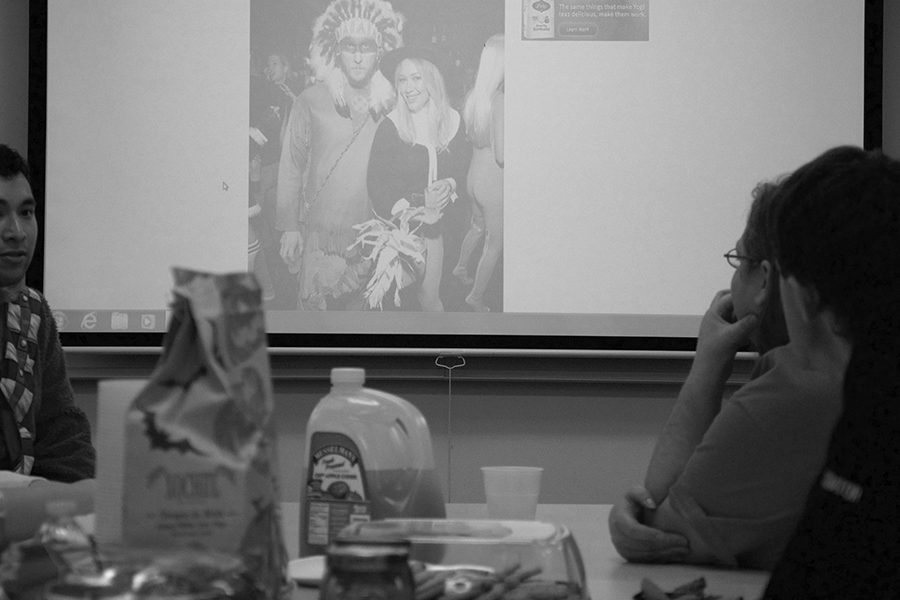Halloween and Cultural Appropriation
November 1, 2016
With Halloween right around the corner, the United Common Ground (UCG) held Costume Awareness Week from Oct. 24-28, to raise awareness on costume choices. It’s always fun to dress up in something that we can’t normally wear on that special day.
However, sometimes we see people dress up in costumes that misrepresent other racial or ethnic groups such as a “drunk Mexican” or a “sexy Indian princess”, without thinking about whether it could offend the people living within those cultures. In recent years, more attention has been brought to this problem.
UCG members claimed that the idea behind Costume Awareness Week is to advocate cultural appropriation. “This campaign is to tell people that we are more than just a costume.” said Katie Ackley, Advisor of UCG. Ackley gave an example of girls waring headdress for Halloween. Ackley thought it was inappropriate to wear the headdress with fake, colored feather on Halloween.
Having Native American ancestry, Ackley explained that the eagle feather on the headdress in her culture is a symbol of connection to the creator. Back in the days, a headdress could only been worn by a man who was well-respected, such as a chief or a warrior. Nowadays in Native American community, the eagle feather is presented in a ceremonial meaning, such as graduation.
“When it comes to Halloween, people think they are only going to wear it for one night and have fun with friends, …” UCG member MeShan Adams explained, “but what people forget is the fact that this stereotype representation of Native American is not only not accurate, but is also belittling the fact that ‘you get to dress up like this for one day, this is my life’.”
Ashley Vences, President of UCG, told the story of her cousin, who was from Mexico, tried to prove a point of cultural appropriation by dressing up as member of KKK on Halloween. Even though the boy put up boards explaining the intention of his action, he was beaten up by the people who felt offended. The people who beat him up were not charged.
Ackley explained cultural appropriation is where the dominant culture takes elements from culture that was historically another group and making it its own. But by being in the dominant culture, people don’t think about the implication because it doesn’t affect them, said Ackley.
Halloween costume is about creativity. Maybe this Halloween, instead of dressing up as a “sexy Indian princess”, or a “drunk Mexican”, Vences suggests dressing up as a monster, or a princess. “Be creative and spontaneous but be aware and respect those who may be impacted by the appearance you choose for the day of Halloween.”
Said Vences, “When you walk out your house make sure that what you wear won’t leave people with an upset mindset because your wearing their culture or belief.”































